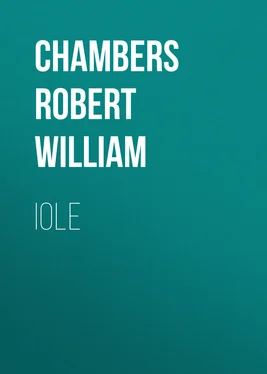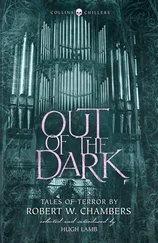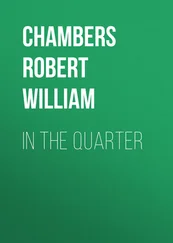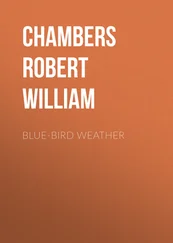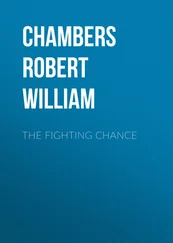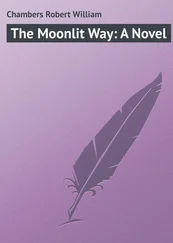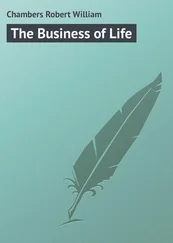Robert Chambers - Iole
Здесь есть возможность читать онлайн «Robert Chambers - Iole» — ознакомительный отрывок электронной книги совершенно бесплатно, а после прочтения отрывка купить полную версию. В некоторых случаях можно слушать аудио, скачать через торрент в формате fb2 и присутствует краткое содержание. Жанр: foreign_prose, foreign_antique, на английском языке. Описание произведения, (предисловие) а так же отзывы посетителей доступны на портале библиотеки ЛибКат.
- Название:Iole
- Автор:
- Жанр:
- Год:неизвестен
- ISBN:нет данных
- Рейтинг книги:4 / 5. Голосов: 1
-
Избранное:Добавить в избранное
- Отзывы:
-
Ваша оценка:
- 80
- 1
- 2
- 3
- 4
- 5
Iole: краткое содержание, описание и аннотация
Предлагаем к чтению аннотацию, описание, краткое содержание или предисловие (зависит от того, что написал сам автор книги «Iole»). Если вы не нашли необходимую информацию о книге — напишите в комментариях, мы постараемся отыскать её.
Iole — читать онлайн ознакомительный отрывок
Ниже представлен текст книги, разбитый по страницам. Система сохранения места последней прочитанной страницы, позволяет с удобством читать онлайн бесплатно книгу «Iole», без необходимости каждый раз заново искать на чём Вы остановились. Поставьте закладку, и сможете в любой момент перейти на страницу, на которой закончили чтение.
Интервал:
Закладка:
They sat down on the veranda; Wayne fumbled for his cigar-case, but his unnerved fingers fell away; he dared not smoke.
“About—about that business matter,” he ventured feebly; but the poet raised his plump white hand.
“You are my guest,” he said graciously. “While you are my guest nothing shall intrude to cloud our happiness.”
Perplexed, almost muddled, Wayne strove in vain to find a reason for the elimination of the matter that had interrupted his cruise and brought him to Rose-Cross, the maddest yachtsman on the Atlantic. Why should Guilford forbid the topic as though its discussion were painful to Wayne?
“He always gets the wrong end foremost, as Briggs said,” thought the young man. “I wonder where the deuce Briggs can be? I’m no match for this bunch.”
His thoughts halted; he became aware that the poet was speaking in a rich, resonant voice, and he listened in an attitude of painful politeness.
“It’s the little things that are most precious,” the poet was saying, and pinched the air with forefinger and thumb and pursed up his lips as though to whistle some saccharine air.
“The little things,” he continued, delicately perforating the atmosphere as though selecting a diatom.
“Big things go, too,” ventured Wayne.
“No,” said the poet; “no—or rather they do go, in a certain sense, for every little thing is precious, and therefore little things are big!–big with portent, big in value. Do you follow me, Mr. Wayne?”
Wayne’s fascinated eyes were fixed on the poet. The latter picked out another atom from the atmosphere and held it up for Mr. Wayne’s inspection; and while that young man’s eyes protruded the poet rambled on and on until the melody of his voice became a ceaseless sound, a vague, sustained monotone, which seemed to bore into Wayne’s brain until his legs twitched with a furious desire for flight.
When he obtained command of himself the poet was saying, “It is my hour for withdrawal. It were insincere and artificial to ask your indulgence–”
He rose to his rotund height.
“You are due to sit in your cage,” stammered Wayne, comprehending.
“My den,” corrected the poet, saturating the air with the sweetness of his smile.
Wayne arose. “About that business—” he began desperately; but the poet’s soft, heavy hand hovered in mid-air, and Wayne sat down so suddenly that when his eyes recovered their focus the poet had disappeared.
A benumbed resentment struggled within him for adequate expression; he hitched his chair about to command a view of the meadow, then sat motionless, hypnotized by the view. Eight girls, clad in pink blouses and trousers, golden hair twisted up, decorated the landscape. Some were kneeling, filling baskets of woven, scented grasses with wild strawberries; some were wading the branches of the meadow brook, searching for trout with grass-woven nets; some picked early peas; two were playing a lightning set at tennis. And in the center of everything that was going on was Briggs, perfectly at ease, making himself agreeably at home.
The spectacle of Briggs among the Hamadryads appeared to paralyze Wayne.
Then an immense, intense resentment set every nerve in him tingling. Briggs, his friend, his confidential business adviser, his indispensable alter ego , had abandoned him to be tormented by this fat, saccharine poet—abandoned him while he, Briggs, made himself popular with eight of the most amazingly bewitching maidens mortal man might marvel on! The meanness stung Wayne till he jumped to his feet and strode out into the sunshine, menacing eyes fastened on Briggs.
“Now wouldn’t that sting you!” he breathed fiercely, turning up his trousers and stepping gingerly across the brook.
Whether or not Briggs saw him coming and kept sidling away he could not determine; he did not wish to shout; he kept passing pretty girls and taking off his hat, and following Briggs about, but he never seemed to come any nearer to Briggs; Briggs always appeared in the middle distance, flitting genially from girl to girl; and presently the absurdity of his performance struck Wayne, and he sat down on the bank of the brook, too mad to think. There was a pretty girl picking strawberries near-by; he rose, took off his hat to her, and sat down again. She was one of those graceful, clean-limbed, creamy-skinned creatures described by Briggs; her hair was twisted up into a heavy, glistening knot, showing the back of a white neck; her eyes matched the sky and her lips the berries she occasionally bit into or dropped to the bottom of her woven basket.
Once or twice she looked up fearlessly at Wayne as her search for berries brought her nearer; and Wayne forgot the perfidy of Briggs in an effort to look politely amiable.
Presently she straightened up where she was kneeling in the long grass and stretched her arms. Then, still kneeling, she gazed curiously at Wayne with all the charm of a friendly wild thing unafraid.
“Shall we play tennis?” she asked.
“Certainly,” said Wayne, startled.
“Come, then,” she said, picking up her basket in one hand and extending the other to Wayne.
He took the fresh, cool fingers, and turned scarlet. Once his glance sneaked toward Briggs, but that young man was absorbed in fishing for brook trout with a net! Oh, ye little fishes! with a net !
Wayne’s brain seemed to be swarming with glittering pink-winged thoughts all singing. He walked on air, holding tightly to the hand of his goddess, seeing nothing but a blur of green and sunshine. Then a clean-cut idea stabbed him like a stiletto: was this Vanessa or Iole? And, to his own astonishment, he asked her quite naturally.
“Iole,” she said, laughing. “Why?”
“Thank goodness,” he said irrationally.
“But why?” she persisted curiously.
“Briggs—Briggs—” he stammered, and got no further. Perplexed, his goddess walked on, thoughtful, pure-lidded eyes searching some reasonable interpretation for the phrase, “Briggs—Briggs.” But as Wayne gave her no aid, she presently dismissed the problem, and bade him select a tennis bat.
“I do hope you play well,” she said. Her hope was comparatively vain; she batted Wayne around the court, drove him wildly from corner to corner, stampeded him with volleys, lured him with lobs, and finally left him reeling dizzily about, while she came around from behind the net, saying, “It’s all because you have no tennis shoes. Come; we’ll rest under the trees and console ourselves with chess.”
Under a group of huge silver beeches a stone chess-table was set embedded in the moss; and Iole indolently stretched herself out on one side, chin on hands, while Wayne sorted weather-beaten basalt and marble chess-men which lay in a pile under the tree.
She chatted on without the faintest trace of self-consciousness the while he arranged the pieces; then she began to move. He took a long time between each move; but no sooner did he move than, still talking, she extended her hand and shoved her piece into place without a fraction of a second’s hesitation.
When she had mated him twice, and he was still gazing blankly at the mess into which she had driven his forces, she sat up sideways, gathering her slim ankles into one hand, and cast about her for something to do, eyes wandering over the sunny meadow.
“We had horses,” she mused; “we rode like demons, bareback, until trouble came.”
“Trouble?”
“Oh, not trouble—poverty. So our horses had to go. What shall we do—you and I?” There was something so subtly sweet, so exquisitely innocent in the coupling of the pronouns that a thrill passed completely through Wayne, and probably came out on the other side.
“I know what I’m going to do,” he said, drawing a note-book and a pencil from his pocket and beginning to write, holding it so she could see.
Читать дальшеИнтервал:
Закладка:
Похожие книги на «Iole»
Представляем Вашему вниманию похожие книги на «Iole» списком для выбора. Мы отобрали схожую по названию и смыслу литературу в надежде предоставить читателям больше вариантов отыскать новые, интересные, ещё непрочитанные произведения.
Обсуждение, отзывы о книге «Iole» и просто собственные мнения читателей. Оставьте ваши комментарии, напишите, что Вы думаете о произведении, его смысле или главных героях. Укажите что конкретно понравилось, а что нет, и почему Вы так считаете.
